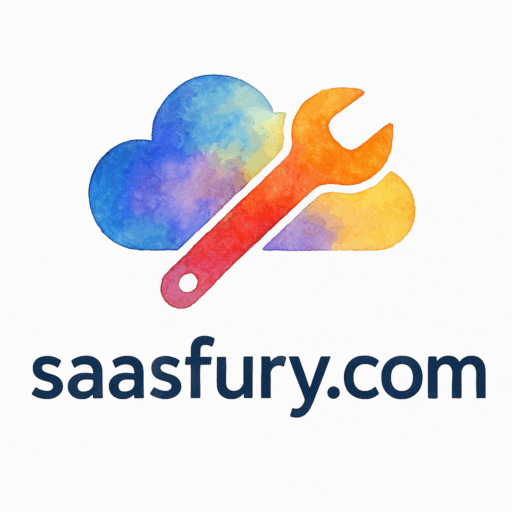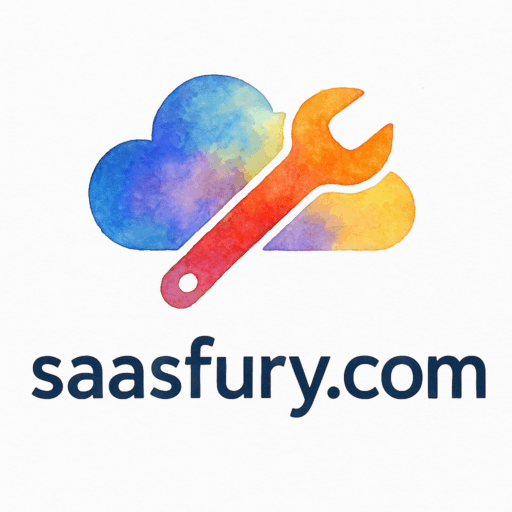Introduction
Running an IT support business today is like being the firefighter of the digital world—you’re constantly called to put out “tech fires.” From troubleshooting network issues to managing client tickets, the workload can quickly pile up. That’s where SaaS tools for IT support businesses come in. They streamline operations, automate repetitive tasks, and help you deliver faster, more reliable support.
In this guide, we’ll explore five must-have SaaS tools that every IT support business should consider. Whether you’re a small team or a growing company, these recommendations can help you save time, boost productivity, and keep your clients happy.
Why IT Support Businesses Need SaaS Tools
SaaS tools aren’t just fancy software—they’re game-changers. Here’s why:
Cost Efficiency and Scalability
Instead of investing in expensive infrastructure, SaaS allows IT support businesses to pay-as-they-go. You scale up or down depending on your client load. This is especially useful for small businesses trying to compete with larger firms.

Enhanced Collaboration
Your team can work together in real-time, whether they’re in the office or remote. SaaS platforms keep everyone on the same page, much like creative collaboration tools do for design and marketing teams.
Automation and Productivity Gains
From ticketing systems to patch management, automation reduces manual work and frees up your team to focus on solving bigger client issues. Similar approaches are seen in professional services, where time-saving tools directly impact profitability.
How to Choose the Right SaaS Tool for IT Support
Before diving into specific tools, it’s crucial to understand how to pick the right ones.
Understand Your Business Needs
Every IT support business is unique. List your pain points and choose tools that solve those problems first. For instance, consulting firms often use SaaS tools differently than e-commerce companies.
Evaluate Security and Compliance
Since you’ll often handle sensitive client data, always check if the SaaS tool follows security best practices and industry compliance. This is a must in regulated sectors like healthcare SaaS where patient data security is critical.
Check Integration Capabilities
Your tools should work well together. Look for solutions that integrate seamlessly with your existing tech stack—something that’s especially valuable in omnichannel retail.
SaaS Tool #1: Remote Monitoring and Management (RMM) Software
What is RMM Software?
RMM tools let IT support teams monitor client devices, networks, and servers remotely. Think of it as having digital eyes on your client’s systems 24/7.
Benefits of RMM for IT Support Businesses
Proactive Monitoring
Spot issues before they turn into disasters. For example, detecting a failing hard drive before it causes downtime—similar to predictive monitoring in retail software.
Automated Maintenance
Schedule routine updates, patch installations, and backups without manual intervention. That means less stress and fewer emergencies.
SaaS Tool #2: Help Desk and Ticketing System
Why a Help Desk is Crucial
Without a ticketing system, client requests can get lost in emails or sticky notes. Help desk tools organize, track, and prioritize requests for maximum efficiency.
Features to Look For
Multi-channel Support
Choose a system that supports emails, chats, and phone calls in one dashboard—something you’d also find in hospitality software, where guest communication is key.
Knowledge Base Integration
Allow clients to self-service common problems, reducing the workload on your team. This mirrors how online education platforms empower learners with instant access to resources.
SaaS Tool #3: Cloud-Based Communication Platforms
Improving Collaboration Across Teams
Platforms like Microsoft Teams or Slack allow real-time communication, file sharing, and project management, ensuring your IT support team stays connected. The same approach benefits marketing agencies who rely heavily on quick collaboration.
Secure and Reliable Client Communication
Clients appreciate direct and secure communication channels. Cloud-based communication makes interactions seamless and professional, much like in hospitality services.
SaaS Tool #4: Documentation and Knowledge Management Tools
Importance of Centralized Knowledge
When IT technicians spend too much time searching for solutions, response times suffer. Documentation tools centralize knowledge so everyone has access. This is similar to how language coaches organize training materials.
Reducing Response Time with Documentation
With a well-maintained knowledge base, even new team members can resolve issues quickly, boosting customer satisfaction.
SaaS Tool #5: Cybersecurity and Endpoint Protection Platforms
Why Cybersecurity Tools are Essential
Clients trust IT support businesses to safeguard their systems. Cybersecurity tools protect against malware, ransomware, and phishing attacks. Industries like healthcare and retail depend on these protections daily.
Key Features for IT Support Businesses
Real-Time Threat Detection
Stay ahead of hackers with tools that monitor and respond instantly to threats, similar to advanced healthcare tools safeguarding patient data.
Automated Patch Management
Outdated software is a hacker’s best friend. Automated patching ensures vulnerabilities are fixed without delays.
Benefits of Implementing SaaS Tools in IT Support Businesses
Increased Customer Satisfaction
Faster responses and fewer errors mean happier clients who stick around longer.
Streamlined IT Operations
No more juggling multiple spreadsheets or scattered tools. SaaS keeps everything centralized, much like SaaS solutions for restaurants.
Better ROI for Small and Medium Businesses
Even smaller IT support businesses can access enterprise-grade tools without breaking the bank, similar to how retail SaaS helps SMB retailers scale effectively.
Common Mistakes IT Support Businesses Make When Choosing SaaS Tools
Ignoring Integration
If your tools don’t talk to each other, you’ll end up with more headaches than solutions.
Overlooking Scalability
Your needs today may double tomorrow. Always pick tools that grow with you.
Choosing Based on Price Alone
Cheap doesn’t always mean effective. Sometimes, a slightly more expensive tool saves you money in the long run. That’s why sites like SaaS tool recommendation guides are valuable.
Future of SaaS in IT Support
AI and Automation in SaaS Tools
Artificial intelligence is making SaaS smarter—think automated ticket routing and predictive maintenance. These trends are already visible in e-commerce platforms.
The Rise of Industry-Specific SaaS
Expect more specialized SaaS tools built exclusively for IT support businesses, much like tailored solutions for hotels or graphic design agencies.
Conclusion
The IT support industry is fast-paced, and without the right tools, it’s easy to fall behind. By adopting these five SaaS tools—RMM software, help desk systems, communication platforms, documentation tools, and cybersecurity solutions—you can streamline your operations, delight your clients, and grow your business with confidence.
Don’t just keep putting out fires. With the right SaaS stack, you’ll prevent them before they even spark.
FAQs
1. What is the most important SaaS tool for IT support businesses?
Remote Monitoring and Management (RMM) software is often the most critical because it helps detect and resolve issues before clients even notice.
2. Are SaaS tools secure for IT support businesses?
Yes, most modern SaaS tools follow strict security standards like encryption and compliance frameworks, but you should always verify before subscribing.
3. Can small IT support companies afford SaaS tools?
Absolutely! Most SaaS tools offer tiered pricing, making them budget-friendly for small businesses.
4. Do SaaS tools replace IT technicians?
No, SaaS tools enhance the work of IT technicians by automating repetitive tasks and giving them more time to handle complex issues.
5. How do I know if a SaaS tool integrates with my current system?
Always check the vendor’s integration list or request a demo before committing to ensure compatibility.
6. What’s the future of SaaS in IT support?
Expect to see more AI-driven features, predictive analytics, and industry-specific solutions tailored for IT service providers.
7. Where can I learn more about SaaS tools for businesses?
Check out SaaSFury, which covers industries from retail to hospitality and beyond.

